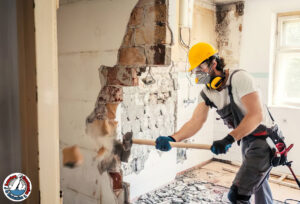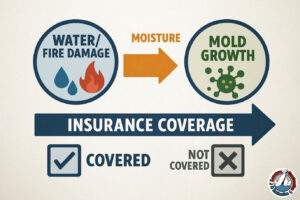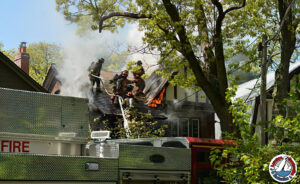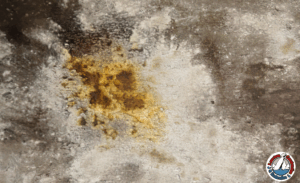Burst Pipe: Why it Happens and How to Avoid it
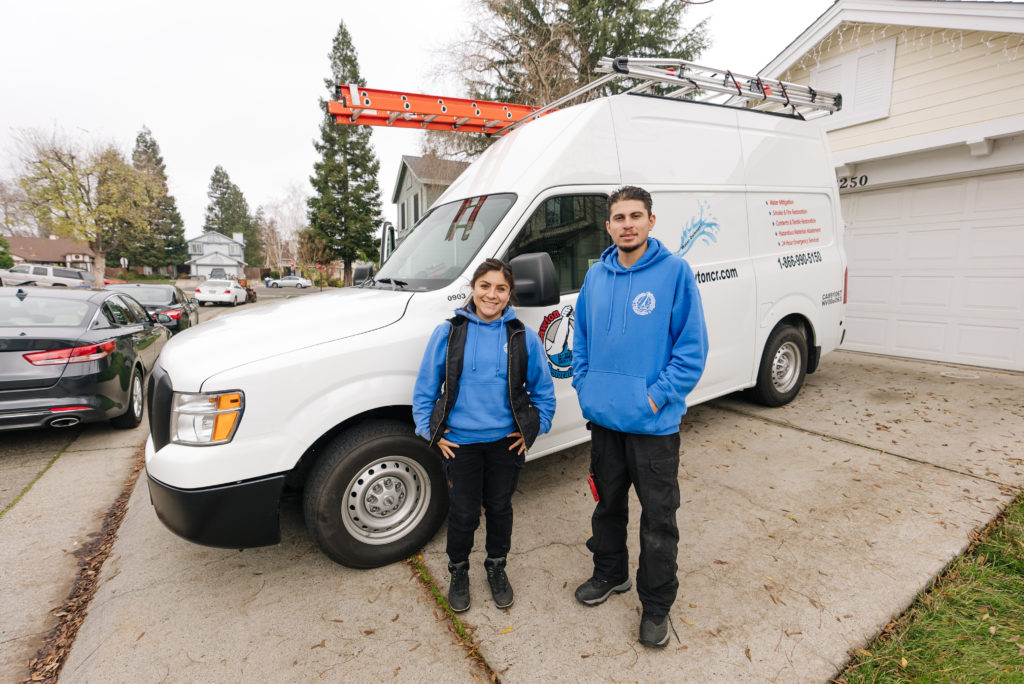
A burst water pipe can cause extensive damage, expenses, and a massive mess.
So, what causes these pipes to burst during the winter and how can you avoid it?
In this blog, we’ll go over what causes pipes to burst and how you can prevent this from happening.
Essentially, in the winter, the water that comes into your house from outside is much colder than it is in the summer months. The cold water causes your pipes to contract, and in their weaker parts, the water can cause the pipe to burst because the pipe is unable to control the water pressure inside.
Other reasons a water pipe may burst include the following: frozen water in pipes, an old plumbing system, clogged pipes, cracked pipes, corroded pipes, and weather damage.
If you experience a burst water pipe, you should close the valve on the main pipe. After shutting off the water supply to the area, you should open a faucet. It will relieve the water pressure in your pipes and drain any remaining water in the pipes. You should then call an emergency plumber to repair the burst pipe.
Following a pipe burst, it is also necessary to get rid of excess moisture on the floor as soon as possible. Remove water soaked objects from the floor. Wear Rubber boots/gloves during cleanup as a safety precaution against possible electrocution. You can use thick towels, a mop, quick dams (specialized type of absorption pad), and when most of the water is collected, you can use a dehumidifier to finish the drying process.
Of course, it is much better to prevent a pipe burst in the first place.

The following are precautions you can take to prevent your water pipes bursting.
1. Keep water faucets at a slow drip/stream. Water that is continuously moving through the system should prevent the water from freezing.
2. Direct warmer air to cold areas of your home. The pipes that freeze/burst first are typically located near an outside wall, so it is important to direct warm air to these pipes.
3. Leave your cabinet doors open. If your kitchen sink is beside an outside wall, you can leave cabinet doors open to allow warmer air in.
4. Disconnect any hoses from outside faucets. If the hoses remain connected, water cannot drain out of your hose bib, and may freeze and break.
5. Heat tape installation. Heat tape can be found at home improvement stores, and will aid in warming pipes as needed. It is recommended that this tape be installed by a professional.
6. Make sure to seal leaks that allow colder air into your home. Check for air leaks around wiring, dryer vents, and pipes. If it gets very cold outside,
even a tiny leak can let in enough cold air to cause a pipe to freeze/break.
7. Keep a check on your home’s temperature. Make sure the temperature never falls below 55°F in any area of your home where water lines are located.
8. Buy a water gauge and occasionally check the water pressure in your pipes by connecting the gauge to the tap. If it shows a figure above 70psi (pounds per square inch), call your plumber ASAP.
9. 9. Don’t hesitate to call Lawton Construction & Restoration if you have a pipe burst in your home and you need assistance in the cleanup and water removal. We have 24/7 emergency service, and you can call us at (866) 552-1763.
There is also an occurrence in pipelines called water hammers. These happen when water shock waves will be generated like “hammers” beating against pipes during sudden power cuts happen or valves are closed too fast. With repeated exposure to high pressure as a result of these water hammers, even very reliable systems can lose their tightness. Pipeline rupture can also occur from a single, but strong water hammer.
Water hammer can also be caused by:
1. Loose pipes. If pipes are not secured properly, even the smallest shockwave can cause water hammers.
2. New appliances. Dishwashers and washing machines have a water supply that is controlled by solenoid valves. These are electrically operated and they stop the flow of water immediately. When this happens, the water reflects back up the pipe and creates a shock wave that causes the bang.
3. Worn stop valves. Stop valves can cause water hammer if they are loose or have worn washers.
4. Clogged air chambers. If a water hammer occurs out of the blue, it may be that your water system’s air chambers are blocked. This can occur from minerals found in the water.
5. Water ripples created by a float valve inside your water tank.
6. Fast acting valves on appliances that stop the water moving along the pipes.
Because water hammer can be annoying but also damage your plumbing and water system, you’ll want to stop it, and here are some methods to do so:
1. Secure loose pipes with tightening studs or pipe straps.
2. Wrap pipes in foam insulation. This will not only prevent banging because of the foam absorption, but it will also help prevent the pipes from freezing.
3. Repair the solenoid valve in your washing machine or dishwasher. Choose a valve that has a slower response time when shutting off the water flow.
4. Install a water pressure regulator. You can regulate high water pressure with a regulator that monitors moving water and controls the pressure of the water entering your home.
5. Install an air chamber.
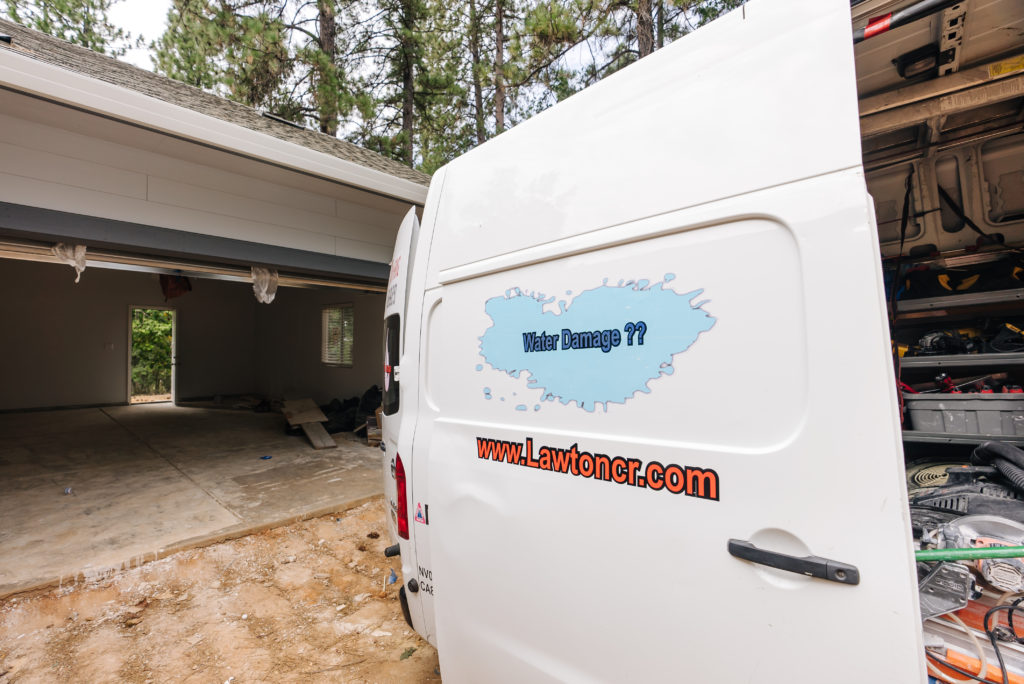
Who We Are
Lawton Construction & Restoration. Proudly serving in North California & Nevada since 1976.
Turnkey services: Emergency, Restoration, Content Care
All levels of complexity: Residential, Comercial, Industrial
Fast interaction with all insurance companies.
